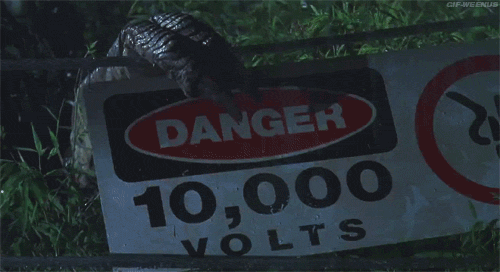Eragon (The Inheritance Cycle #1) by Christopher Paolini
☆☆
Fantasy — High
Well, this is really good if the writer is 16. (Oh, he is?) Give him another fifteen years of writing experience, and he should be really good. (Oh, it’s been fifteen years? How is he now?)
The beginning is pretty decent, but after that I grew increasingly bored. There is little to none character development. Eragon has very few flaws, if any, and just goes along reacting to stuff and trying to be a hero. The descriptions are pretty boring, and the action scenes are pretty boring. The writing itself was pretty good on the surface, but I think it needed to be more succinct.
I’m going to summarize the plot in gifs,
so spoilers ahead. But if you have read any fantasy book before, you already know what happens. (Seriously, this story is Star Wars with a Lord of the Rings paint job on it.)
Eragon is an orphan living with his aunt and uncle. He has no idea who his father is. He picks up a mysterious object

that leads him to seek advice from a Strange Old Hermit:

and gets his family killed:

He wanders around for a while and quickly becomes a master at magic and sword fighting.


While our hero enjoys what I like to call Die Hard syndrome,

the mentor of course has to go.

He has to decide whether to join the Rebel Alliance

and rescues a princess archetype along the way.

Naturally, all the female characters (all two or three of them) are amazingly beautiful.

Okay, about the dragon. The dragon doesn’t have much personality, either. She and Eragon are perfect for each other in this way. For some reason, whenever the book talked about Eragon riding the dragon, I kept imagining this:

The audio narration was pretty good, but the dragon’s voice (and the were-cat’s) for some reason sounded like an impersonation of Frank Oz. I thought of these guys every time the dragon talked:


 TL;DR
TL;DR
This book is a great introduction to fantasy for young readers. Everyone else will just see one cliche and trope after another.








































